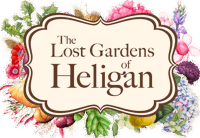Bug Hunting & Pond Dipping – Mini Beasts, Mighty Ecosystems
Grab a net and magnifier! In this outdoor session, students explore Heligan’s ponds and woodlands in search of fascinating mini beasts.
They identify invertebrates, build food chains and learn how tiny creatures keep ecosystems thriving. Designed for KS1–KS3, this fun, muddy workshop inspires respect for the smallest but mightiest engineers of nature.

Learning Objective
Students will explore the diversity of invertebrates found in pond and woodland habitats. They'll learn how to identify species, understand food chains and see how even the smallest creatures support entire ecosystems.
Curriculum Links
KS1 (Ages 5–7)
- Science: Identify and name a variety of animals in different habitats; observe and describe changes in living things.
- Geography: Explore local environments and the living things within them.
- PSHE: Respect for nature and small creatures.
KS2 (Ages 7–11)
- Science: Classification of living things; habitats and food chains; observation and recording skills.
- Geography: Fieldwork to observe, measure and record the local environment.
- Maths: Recording data using tables and simple charts.
KS3 (Ages 11–14)
- Science (Biology): Ecosystems, biodiversity, adaptations and sampling methods.
- Geography: Investigating local environments and human impact on natural systems.
